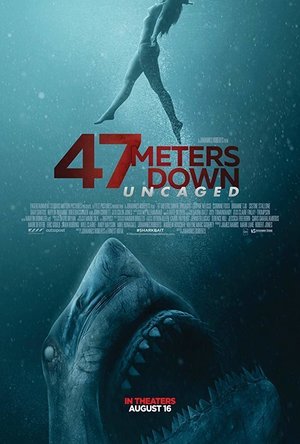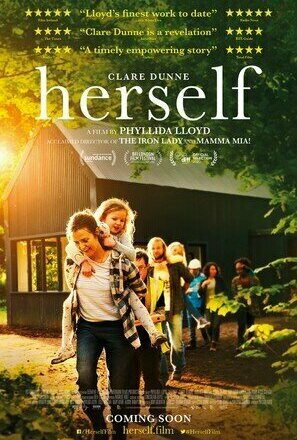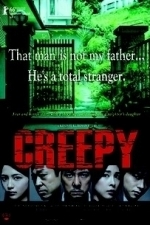Charlie Cobra Reviews (1840 KP) rated 47 Meters Down: Uncaged (2019) in Movies
Jul 7, 2020
Mia (Sophie Nelisse), has had trouble fitting in living in Mexico which includes trouble with girls at school and adjusting to living with her father, step-mother (Nia Long) and sister. Three teenagers, Sasha (Corinne Foxx) her step-sister and her two friends convince her to go swimming with them at a secret lagoon rather than go on a glass bottom boat tour. The lagoon happens to be near a sunken Mayan city where Mia's father Grant (John Corbett) is working. The girls grab some scuba gear and decide to seize this opportunity to see the discovery for themselves and find that it is the hunting ground for deadly great white sharks. With their air supply running out and having to navigate the labyrinth of tunnels the girls find themselves in a race against time and the deadly sharks to try and survive.
This movie was okay but I thought it was going to be better. I hadn't seen the first one so I don't know if they are connected in anyway but I believe they are not. I wanted to see a good shark movie especially since during shark week a while back I had seen a lot of shark shows this year and the movie they did called Capsized which was pretty decent. This movie started off good but failed to set the tension in a gripping way. I didn't like the fact that since they were swimming in caves the lighting was dark and didn't allow for a lot of visuals. It was good for mood setting and ambiance but I thought it was a little gimmicky when they used the flares and it changed everything red. I say that because the CGI of the sharks left me underwhelmed as well. The sharks were supposed to be blind for having evolved or lived in caves the whole time and also adjusted to be more sensitive to sounds. To me the CGI looked unbelievable and threw off the emergence from enjoying the movie. They could have been better or the way they built the tension could have been better. The movie did have a couple of frightening "jump scares", one of which surprised and got me. For some reason I really didn't like the ending, for me it was the main character acting out of character and then there being to many "jump scares" back to back at the end. If you see it you'll know what I'm talking about. Anyways I give this movie a 5/10.
The Oxford Companion to Cheese
Mateo Kehler and Catherine Donnelly
Book
The discovery of cheese is a narrative at least 8,000 years old, dating back to the Neolithic era....
Emma @ The Movies (1786 KP) rated Herself (2020) in Movies
Oct 6, 2020
Sandra is trying to keep her life together for her two daughters after she escapes from her abusive husband. Feeling isolated, overworked and living in a terrible situation Sandra has an off the wall idea that seems like a pipe dream. With the help of those around her she makes a true home for her girls and regains pieces of herself she'd lost.
Herself has some very serious topics in it, domestic violence and childhood trauma being at the top of the list, so that's definitely something to keep in mind if you're thinking of watching it. These topics are very effectively done and those feelings jumped out and affected me in a way I really didn't expect... I cried through a significant amount of the film, so probably just as well I was sitting in my living room and not a crowded cinema.
An interesting discovery on this was that one of the writers was Clare Dunne who plays the lead role of Sandra. I don't know what the process was between her and Malcolm Campbell but that involvement undoubtedly helps Dunne relay the true intent of the script, which I felt was incredibly well written.
Dunne's performance blew me away, barely minutes into the film you realise just what you're in for, it was such a brutal switch that my jaw nearly hit the floor. At every tense moment Dunne's acting is flawless and she conveys the emotions to a T. She does it so well that you get caught up in her anxiety, I found myself waiting for the bad things she was living in fear of and it was agonising... in a good way.
Along with her performance they use footage so well to help convey the story. When Sandra has an anxiety attack they cut clips into the scene, the quick changing back and forth between memory and present day brings the unsettling familiarity of panic and brings about a deeply emotional moment in the film. It might not conjure the exact same feeling as your own personal anxiety attack but it was closer than any other films I've seen it in.
Herself is a strong reminder that the vulnerable have the power within them to overcome anything through the right support and people who care. And sadly, it also reminds us that the system is a little messed up. I'm so pleased that I got the opportunity to see this, it's a well crafted film and I can say without a doubt it's already one of the highlights of this year's LFF.
Originally posted on: https://emmaatthemovies.blogspot.com/2020/10/herself-movie-review.html
Darren (1599 KP) rated Creepy (Kuripi: Itsuwari no rinjin) (2016) in Movies
Sep 26, 2019
Performances – Hidetoshi Nishijima is wonderful in the leading role, which sees him caught between a new life or the old one he was successful in, Teruyuki Kagawa is truly disturbing in his role which will make you feel uncomfortable whenever he is on screen. Yuko Takeuchi is great to watch in her role which sees her caught in the middle of everything going on.
Story – The story here follows a former detective that starts teaching, only to find himself drawn back into a case which might have a connection closer to home for him. This is a story that does take a little bit of time to get going because we do get a clear path we are heading down, but start following two different stories that will connect. The story does become very dark though which is intense to watch to see just what the serial killer has been up to and his plan for people. It only gets upped when Takakura is left knowing the truth and being left helpless to take the killer down at times.
Horror/Mystery – The horror in this film comes form seeing just what the serial killer has been doing with a new unique way of covering up the bodies in his path, the mystery comes from seeing how a former case could become difficult to solve.
Settings – The film shows us how serial killers could operate in any neighbourhood, showing us just how they can get away for so long.
Scene of the Movie – Bag time.
That Moment That Annoyed Me – It does take slightly too long to get going.
Final Thoughts – This is one of the most creepy disturbing serial killer films you will ever see, just seeing how a cat-n-mouse battle takes over.
Overall: Intense thriller.

Remote for Roku
Utilities and Entertainment
App
◆◆◆ Newsflash: This is the app featured by CNET in the video "How to control your Roku with...
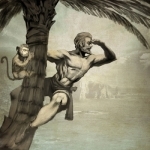
The Island:Brave Heart
Games and Sports
App
The Island,Man in the Wild,Amazing Adventure.... This is a game about exploring and surviving on a...

CBS Full Episodes and Live TV
Entertainment and Utilities
App
Stream full episodes from your favorite shows the day after they air for FREE! Plus, when you...

DomiNations
Games and Entertainment
App
Grow a flourishing civilization and journey through all of human history as the leader of a mighty...
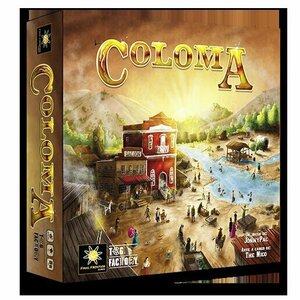
Coloma
Tabletop Game
Coloma is the town where an unexpected event happened that shaped history of the Western Frontier....
Boardgames WildWestgames 2019Games
